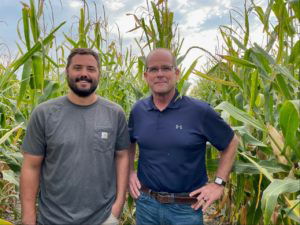
New Food Regulations Mean Less Strict Food Safety Control
Dec 21, 2012
Brunswick, GA (Law Firm Newswire) December 20, 2012 – While many small business bakers and chefs wish they did not have to rent expensive commercial kitchens, food safety regulations stipulate stand-alone food preparation spaces.
This requirement has changed. Georgia’s new cottage food regulations took effect September 2012, and allow individuals to prepare items considered “non-potentially hazardous” in their own kitchens. Home cooks can then sell their items directly to the consumer, but cannot distribute them via retailers.
The loosening of licensing allows items that do not need refrigeration, including breads, cakes, cereals, pastries, nuts, vinegars and popcorn. No meat, dairy, poultry, or any items that need to be temperature-controlled are allowed. Product labels must state that the item was prepared in a facility that is not subject to food safety inspections.
Previously, the Georgia Department of Agriculture required home cooks to prepare the items in a separate domestic or commercial kitchen space. Gary Black, Georgia Agriculture Commissioner, stated that the cottage food regulation was okayed after looking at similar guidelines in place in other states. The goal was to meet public health needs while also supporting small businesses.
Before the cottage food regulation, a business owner had to attend food safety courses, pass a kitchen inspection and have product labeling approved by a third-party assessor. For the new cottage food business regulation, the owner must pay a $100 annual licensing fee, have a kitchen inspection within two weeks, and meet zoning and wastewater management laws.
What will this mean for the public? “As with any food purchase you may make,” says Nathan Williams, Brunswick personal injury attorney, “there is always some aspect of ‘buyer beware.’ You want to believe that food handlers wash their hands properly and that the environment is kept pristine.”
Norovirus, E. coli and Hepatitis A can be transferred from a person to food if they have not properly washed their hands before handling items to be consumed. According to the Centers for Disease Control and Prevention, there are 48 million illnesses each year from food borne pathogens, as well as approximately 128,000 hospitalizations, and 3,000 deaths in the U.S.
Nathan Williams is a Brunswick personal injury lawyer, Brunswick divorce attorney, Brunswick criminal defense attorney and Brunswick DUI lawyer in Southeast Georgia. Visit http://www.thewilliamslitigationgroup.com or call 1.912.264.0848.
The Williams Litigation Group
5 St. Andrews Court
Brunswick, GA 31520
Phone: 912.264.0848
Toll Free: 877.307.4537
Fax: 912-264-6299




